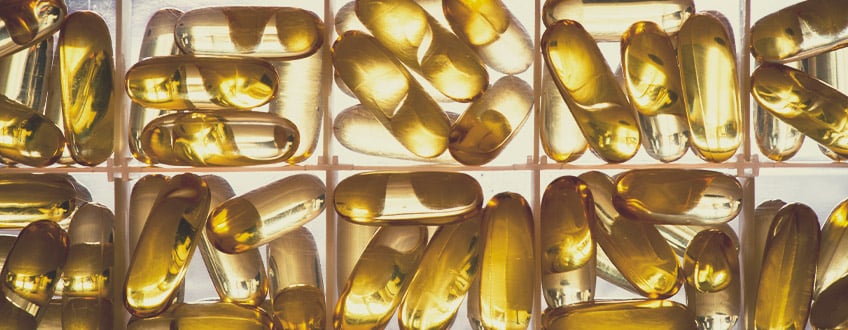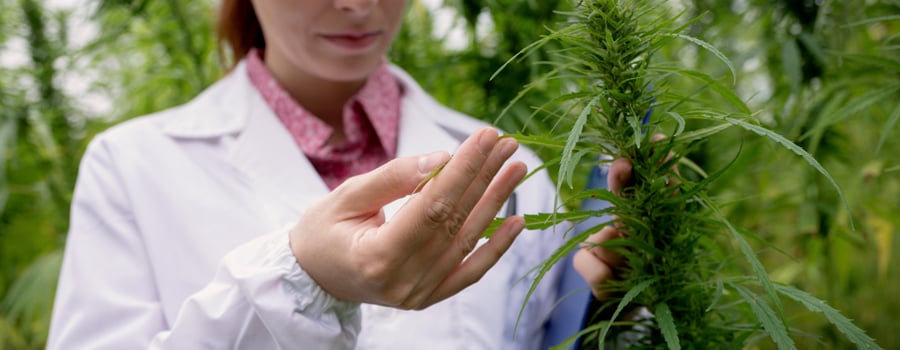Included FREE items

Could Medical Marijuana Replace Some Prescription Drugs?
Medical cannabis is being proven to assist and treat many medical conditions in a safe and natural way. As research continues to develop, cannabis may present itself as an effective replacement for many pharmaceutical drugs that come with potentially dangerous side effects.
Cannabis appears to be breaking free from the chains of prohibition and returning back to its previous status of a herb capable of being utilised for a great number of medical ailments. The cannabis plant is gaining recognition for its vast medical potential, and certain parts of the world are actively moving to legalise it on a medical, and even recreational level.
As science explores cannabis and its active compounds more and more, the research is demonstrating its potential use in treating and easing human ailments that range from pain and depression all the way to cancers, epilepsy and Alzheimer’s disease. Although many people, when picturing the role of cannabis as a medicine, may imagine a person smoking weed via a spliff or bong, it can be used in a variety of different ways when it comes it medical application.
Oils, extracts and tinctures offer users high concentrations of the medicinal compounds without having to smoke or vape at all. Not only do these methods serve as far more efficient and potent ways of utilising cannabis as a medicinal substance, but they also help to subtract from the stereotype that whenever somebody brings up the topic of cannabis, they are referring to smoking and getting high from the cannabinoid THC.
Cannabis science is really evolving, and large numbers of people are using the herb as a medicine to combat various conditions. Cannabis seems to work with such efficiency and effectiveness that it may even start to completely replace some forms of pharmaceutical medication that people use for the same condition.
This is an extremely important and exciting realisation as cannabis is increasingly deemed low-risk, very effective, and simple in the fact that it is a whole plant, derived directly from nature. This opens up the possibility of decentralised, non-profit medicine that can literally be grown at home if laws ever reach such a liberating conclusion.
So let's take a look at some of the pharmaceuticals that cannabis may be successful at replacing.

PAINKILLERS
A scientific paper[1] titled The Effect of Medicinal Cannabis on Pain and Quality-of-Life Outcomes in Chronic Pain: A Prospective Open-label study published in The Clinical Journal of pain looks a the role of cannabis as a painkiller. The paper documents a study that approved treatment with cannabis for 274 participants. It was observed that scores for pain symptoms and pain severity improved.
A REPLACEMENT?
One quite interesting factor seen in this study was the fact that participants opioid consumption decreased by 44 percent during a follow up. This information could lead to further study and application of cannabis as a painkiller and potentially a replacement for opioid medication used for cases of pain.
A huge advantage of this switch could be that cannabis could literally save lives. It is low-risk herb with zero cases of overdose. The same cannot be said, however, for pain killing medication in the form of opioids. According to the United States Centres for Disease Control and Prevention, opioids including prescription opioids killed more than 33,000 people in 2015. They also state that nearly half of all opioid overdose deaths involve prescription drugs.
A paper[2] titled Medical Cannabis Access, Use, and Substitution for Prescription Opioids and Other Substances: A Survey of Authorised Medical Cannabis Patients published in The International Journal of Drug Policy features a survey that looked at cannabis as a substitute for pharmaceutical drugs. The survey was completed by 271 patients. 30 percent of patients reported that they had substituted pharmaceutical opioids with cannabis.
The authors of the paper state, “The finding that patients report its [cannabis] use as a substitute for prescription drugs supports prior research on medical cannabis users…”
ANXIETY MEDICATION
Using America as a model once again, it is reported that 40 million of the population of adults suffer from anxiety disorders. Common medication used in an attempt to treat anxiety are a range of drugs known as benzodiazepines which include xanax, klonopin, valium and ativan.
Although these drugs may be effective at tackling anxiety for some, they can be abused and do have a range of negative side effects. Such side effects from high doses of benzodiazepines can include confusion, drowsiness, dizziness, weakness blurred vision and more.
RESEARCH
A scientific paper[3] published in the journal Biological Psychiatry documents a study performed on mice that displays the potential anti-anxiety effects of cannabis. Interestingly, the researchers state that cannabis may even act on the same receptors that benzodiazepine binds too, saying, “It is therefore our contention that the antianxiety effect of cannabis is mediated through central benzodiazepine receptors.
This research is an interesting indication that cannabis may play a strong role as an anti-anxiety medication in the future and may very well substitute current pharmaceutical drugs, as it perhaps works upon the same biological mechanism.

STIMULANTS
Adderall is an amphetamine that belongs to a class of drugs known as stimulants. Due to the effects that may help to increase concentration, it is a pharmaceutical drug that is used to treat ADHD, or attention deficit hyperactivity disorder.
However adderall comes along with side effects such as weight loss, loss of appetite, stomach pain, nervousness and trouble sleeping.
A paper[4] titled Cannabis Improved Symptoms of ADHD starts to shed light on the potential of cannabis as an alternative to current ADHD medication.
The authors of the paper conducted an investigation into the possible benefits that patients with ADHD could receive from consuming the psychoactive cannabinoid THC. The authors state that “A 28-year old male, who showed improper behaviour and appeared to be very maladjusted and inattentive while sober, appeared to be completely inconspicuous while having a very high blood plasma level of delta-9-tetrahydrocannabinol (THC).”
In other words, THC seemed to help his condition.
Additionally, the authors conclude that, “The present case report suggests that individuals suffering from ADHD, a dysfunction with a symptomatic change in activity levels, may - in some cases - benefits from cannabis treatment in that it appears to regulate activation to a level which may be considered optimum for performance.”
ANTIDEPRESSANTS
The aforementioned survey showed that out of 271 patients, 12 percent reported to use cannabis as a substitute for pharmaceutical antidepressant drugs.
A paper[5] published in the journal Neuropharmacology displays that CBD displays a fasting acting antidepressant-like action within animal models. The authors state that, “...our findings indicate that CBD could represent a novel fast antidepressant drug…”.
SLEEP MEDICATION
Finally, sleep medication is another area that cannabis could potentially be used in, in replacement of pharmaceutical drugs.
Many people who struggle with sleep may have insomnia, a condition that is associated with difficulty falling asleep, as well as difficulty staying asleep for long period of time. Sleeping pills are often used as a treatment, yet they do pose side effects and risks. However many sleep drugs have been found to be only mildly effective.
Reports exists of people claiming CBD application before bed helps them get a good night's sleep.
External Resources:
- The Effect of Medicinal Cannabis on Pain and Quality-of-Life Outcomes in Chronic Pain: A Prospective Open-label Study - PubMed https://www.ncbi.nlm.nih.gov
- Medical cannabis access, use, and substitution for prescription opioids and other substances: A survey of authorized medical cannabis patients - ScienceDirect http://www.ijdp.org
- Antianxiety Effect of Cannabis: Involvement of Central Benzodiazepine Receptors - PubMed https://www.ncbi.nlm.nih.gov
- Cannabis improves symptoms of ADHD http://cannabis-med.org
- Cannabidiol induces rapid-acting antidepressant-like effects and enhances cortical 5-HT/glutamate neurotransmission: role of 5-HT1A receptors - ScienceDirect http://www.sciencedirect.com
Disclaimer:
This content is for educational purposes only. The information provided is derived from research gathered from external sources.










































